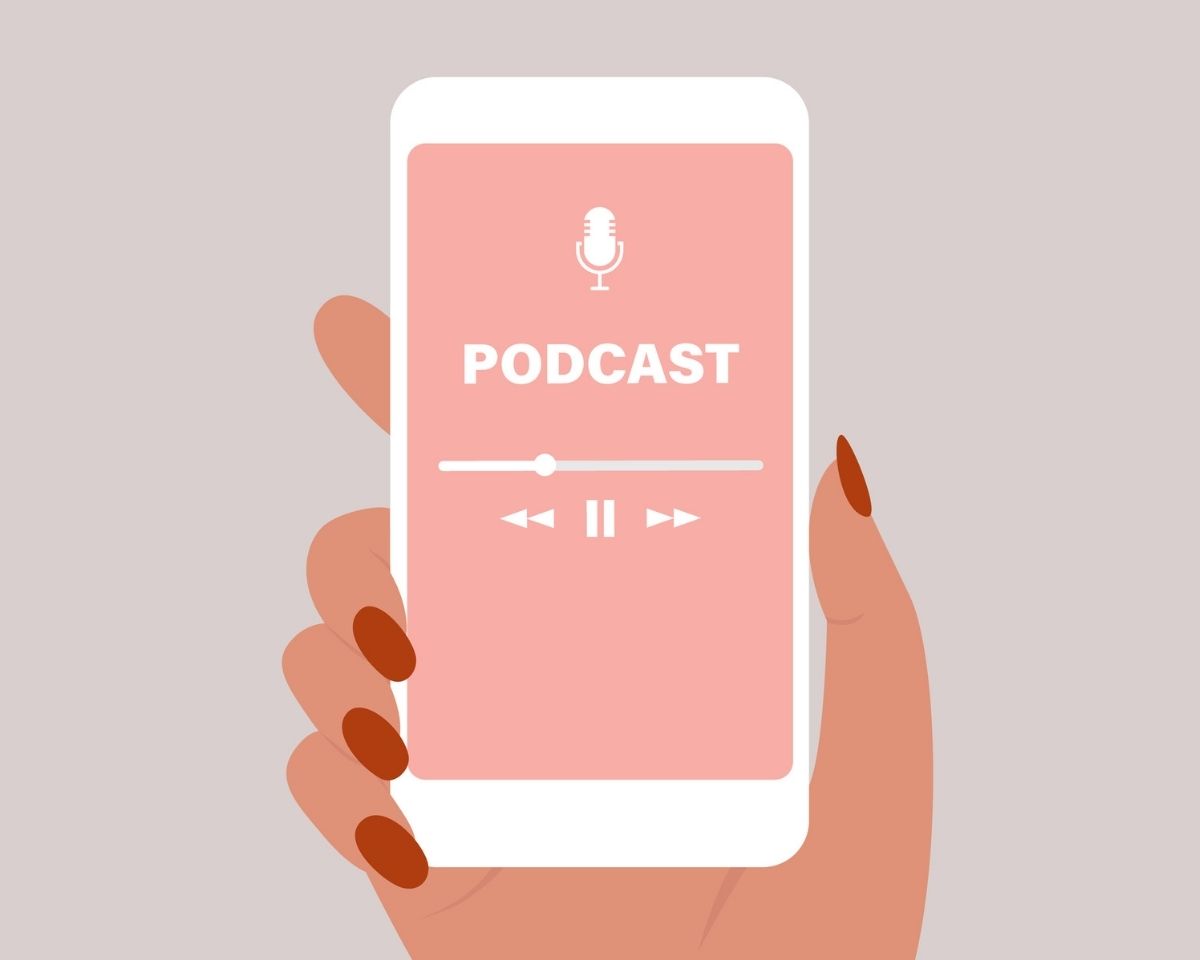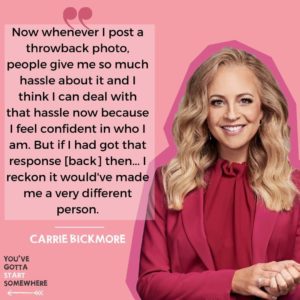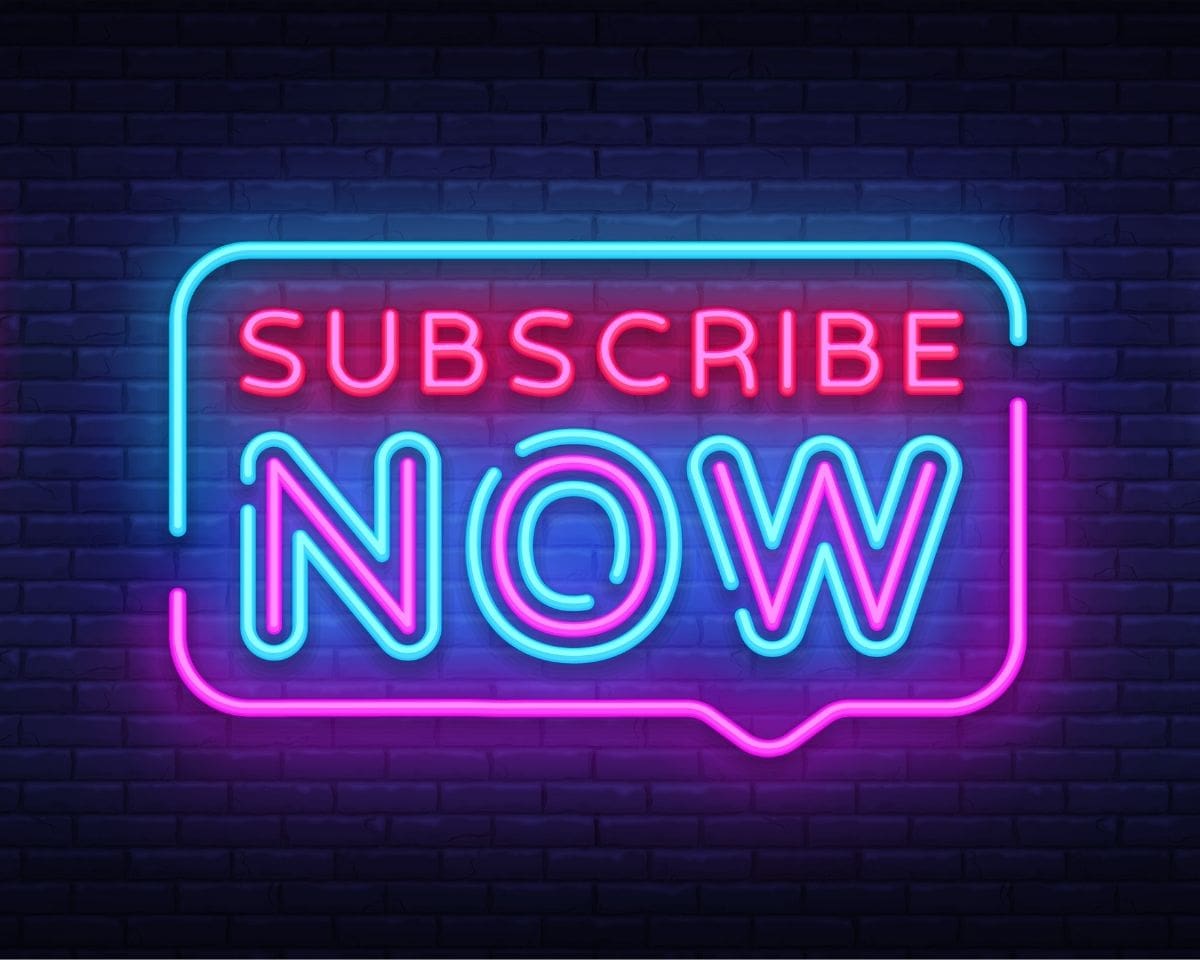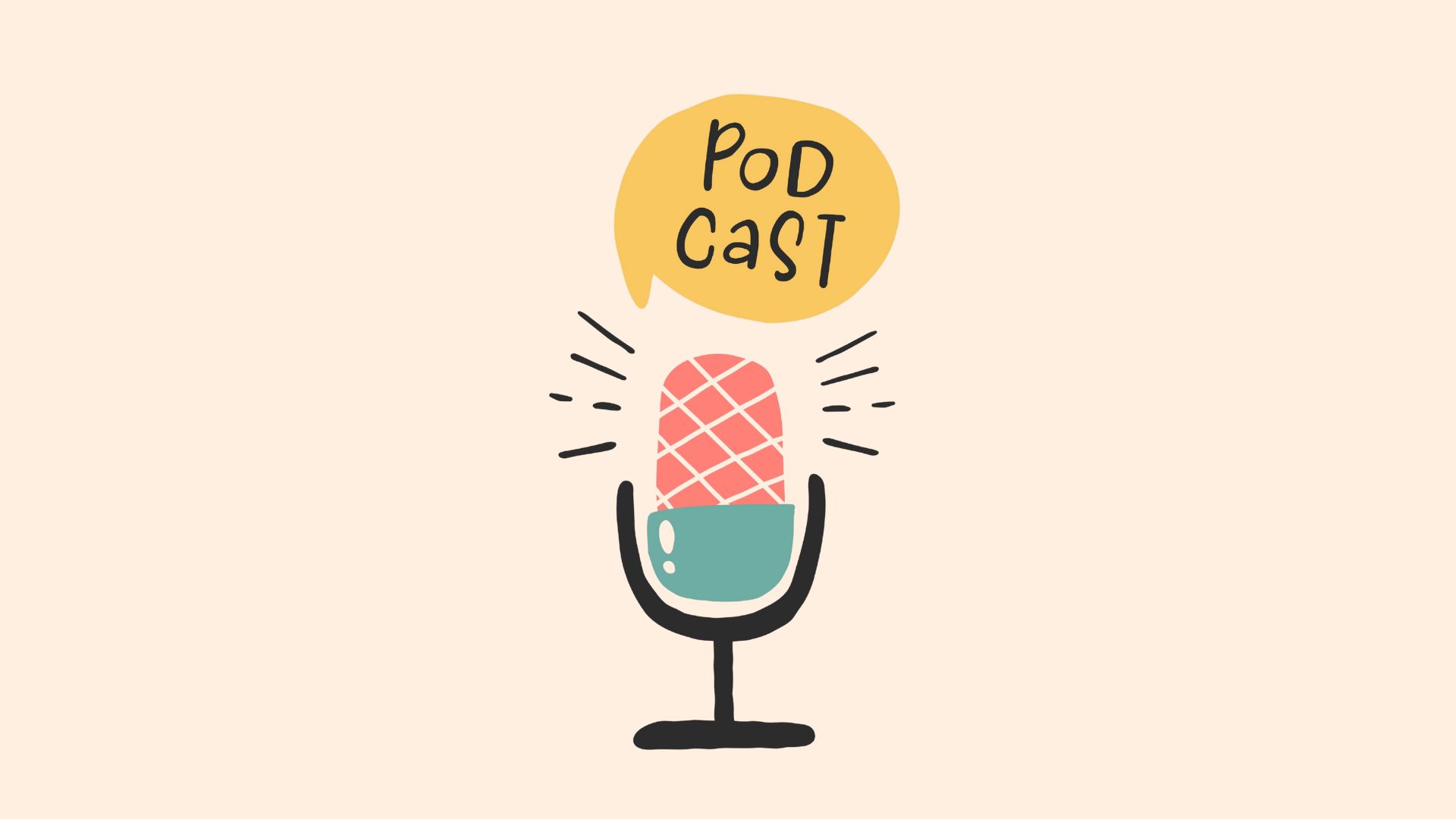How to get more people listening to your podcast
If you want to grow your podcast audience, promotion is essential to get your show in front of more eyes and ears.
So how do you promote your podcast in a way that’s interesting and engaging and that encourages more people to listen?
[button text=”Apple” url=”https://itunes.apple.com/au/podcast/podschool-learn-how-to-create-professional-podcast/id1239671724?mt=2″ class=””] [button text=”Google” url=”https://www.google.com/podcasts?feed=aHR0cHM6Ly9yc3Mud2hvb3Noa2FhLmNvbS9yc3MvcG9kY2FzdC9pZC8xMzAz” class=””] [button text=”Spotify” url=”https://open.spotify.com/show/1Q2L51iY2sIL8BEkAKyxZj” class=””]
The things you must do to promote your podcast
When it comes to promoting your podcast it’s often best to choose the strategies that work best for you and focus on those rather than trying to do everything.
However, there are a few things you must do including…
Submit your show to podcast directories
If you want people to listen to your show you need them to be able to find it and that means your show needs to be in the major podcast directories.
There are new ones springing up every day but at the very least you want your show to be in Apple Podcasts, Google Podcasts and Spotify.
You can spend half your life submitting to every other directory known to man but these three are the main ones and you’ll find once you’ve submitted to these your show will pop up automatically in a few others that import feeds directly from Apple Podcasts e.g. Overcast.
Essentially, you want your show to be in every place a potential listener might want to listen.
Share your podcast using a universal link
If you’ve been promoting your podcast using only your Apple Podcasts link, anyone on an Android phone who’s clicked on that link would have been sent to internet purgatory. Not a great place to be.
Android users make up a huge proportion of the global population so that’s a lot of potential ears you’re missing out on if you’re not using a link that works for everyone.
Make sure your podcast is optimised for search
Podcast SEO is really important for discoverability because it means people don’t need to be in a podcast app to find your show.
They can be searching for something in Google and if your SEO is on point your show will pop right up.
Create detailed show notes
If you’ve got a decent amount of information in your show notes pages and you’ve got your SEO right, people can find your podcast by landing on your website.
For the PodSchool Podcast, I create a corresponding blog post for every episode.
That way I’m creating content for people who want to listen as well as read and I’m giving Google all the information it needs to help people find my show.
When people land on your show notes pages you want them to be able to easily play your episodes.
Plus you need to provide all the information and links they need to easily subscribe or follow your show.
Promote your podcast on social media
When you’re sharing your show on social media you need to be a bit more creative than just sharing a link to your episodes.
You want to get people interested enough to listen right then and there or search for it in their podcast app to listen to later.
Below are a few examples of content you can share on social media to get you thinking.
It’s important to choose the right content for your show, to be creative and mix it up if you can…
Behind the scenes content
When you’re sharing content to promote your podcast it doesn’t need to be limited to audio of your show.
Sharing behind-the-scenes vision or even a photo of the making of your show can help an audience get a sense of you as a host and the vibe of your podcast.
These videos or images don’t need to have high production value, in fact, with behind-the-scenes content it’s often better to share things that are a bit more raw and real like this photo of Peter Berner recording my podcast You’ve Gotta Start Somewhere.
With this photo I wanted to show my audience the lengths you go to, to try and get good audio.
As well as the fact that podcasting isn’t always about recording in a professional studio…even when you do this for a living.
Insights, quotes or memes
If your guest says something interesting, insightful, revealing or just downright entertaining, take that quote and use it to create a visual tile to promote the episode.
If people can get a sense of the kind of content they’re likely to hear if they listen to your show, and they like it, they’ll be more likely to give it a try.
Snippets of audio
Sharing audio teasers (short snippets of audio from your show) can be a great way to get people to try before they commit to listening to a full episode.
You can do this by uploading short sections of your show to Soundcloud and sharing those…
Or creating audiograms using tools like Headliner or Wavve…
https://www.instagram.com/p/BhaVCRzAVJR/?igshid=wd3a01wg7i9w
Instead of saying “this is great” in words, you can prove it by sharing engaging moments that will make people want to listen.
Don’t forget to share your episodes more than once
One mistake I see a lot of podcasters make is they share their podcast episode the day it’s released and then never speak of it again.
If your show is based around topical content it’ll obviously have a fairly short shelf life but that doesn’t mean you need to tweet about it once and that’s it.
Make sure you tell your audience about it as soon as it goes live, then again the next day and maybe a couple more times that week.
If your content is evergreen you can schedule social posts to promote episodes over the coming weeks, months or even years.
And if you know what’s coming there’s no reason why you can’t also pre-promote each episode before it’s live to build interest.
It might feel like a lot but platforms like Twitter move so fast you might post about an episode five times before someone sees it.
Platforms like Instagram and Facebook aren’t as forgiving when you’re posting about the same thing over and over but your followers also don’t see everything you post (thanks to the magic of algorithms).
So work out a schedule that works for you and your audience and share, share, share.
Don’t forget hashtags
Including the right hashtags in your social media posts can help get your episodes in front of people who are searching for content in that niche.
This is great for discoverability because it means you can find new listeners even if they’ve never heard of you or your show.
Additional strategies to promote your podcast
Leverage the audience of your high-profile guests
Having a guest with a big following doesn’t guarantee you’ll be inundated with new listeners but it can definitely help get your show in front of new ears and eyes.
If you’ve got a high-profile guest on your show make sure you send them all the information they need to share the episode with their audience. And make it easy.
Send them a universal link that works on all devices as well as any visual assets you’ve made e.g. images or audiograms.
A word of warning here.
Make sure you look at the aesthetic of your guest’s social pages before you create images for them to share.
If their profile is a mix of soft pinks and greys and you give them an image consisting of bright primary colours that completely clashes with their brand you’re almost guaranteeing they won’t share it.
Also, make sure that no matter how you share your show you always tag them in the post because reposting what you’ve posted is the easiest way for someone to share.
And whatever you do, remember, the social media feed of your guest is theirs, not yours.
It’s something they’ve cultivated through time and hard work so you need to take that into consideration by sending them content they’ll want to share but also by being respectful if they decide they don’t want to share it i.e. don’t be a pest.
Create a content hub on your website
If you add categories and tags to the podcast content on your website you can create pages where all the content under these categories or tags is grouped together.
Then you can share that on social media.
For example, if your podcast is about business and you’ve got a bunch of episodes tagged with ‘startup’ you could share those episodes in a group for people looking for content all about the startup phase of a business.
Then you’re offering a wider range of content than just a single episode and encouraging people to listen to more than one.
Get your friends and family to listen
When you start a podcast, convincing people you’ve never met to listen to your show is a lot harder than roping in your friends and family.
This can sometimes feel a bit weird but the people in your life will want to support you.
And if you can’t sell your show to them, who can you sell it to?
Build an email list
This strategy is not about grabbing a whole bunch of email addresses, sending an email every time you drop an episode and providing nothing else of value.
Email lists don’t work for everyone but if you’re going to build one you have to put in serious time and effort because an email list is only as powerful as the people you’ve got on it.
If you run a giveaway and people have given you their email address through that, chances are they’re probably there for free stuff rather than the content you provide so you might end up with a list full of people who aren’t right for you.
A list like that results in really low open rates and a lot of unsubscribes, so you’re always better off having a smaller list filled with the right people.
A couple of hundred people who love your stuff are much more powerful than 50,000 people who send your emails straight to their junk folder.
Once you’ve got a list of great email subscribers, you need to keep them and that’s hard.
You need to send out a lot of content to cultivate a relationship with them so they’ll be interested when you send out requests for them to check out your show or subscribe.
If you don’t have the time or the passion to do this and you just want a list of people to blast out your episodes to, don’t bother.
You won’t get the results you’re after unless you put in the hard work.
Oh, and if you don’t have an email list at least pop a link to your podcast in your email signature so you’re promoting your show when you send emails.
Make the most of social media groups and forums
This method of promotion takes a bit of time and effort because you can’t join a Facebook group or forum and start peppering the feed with desperate pleas for people to listen to your podcast.
There are often strict rules about spruiking in these groups so if you’re going to join these communities you need to offer value first.
Facebook groups often have specific days when you can plug what you’re doing but I find them a better source of content than promotion because they’re full of people asking questions in your niche.
Answer questions on Quora
Building a profile on this, or any platform, takes time but if you chip away at it, it can be an effective way to establish yourself as an expert.
It’s not going to bring in millions of new listeners but every little bit helps.
Use paid social
If you’re sharing your episodes on social media try boosting a few posts.
Unfortunately, one of the limitations of paid social is you can’t tell if someone actually listened to your episode after they saw your ad unless you use a tracking service like Chartable.
Social media ads also don’t translate to thousands of new listeners so this method of promotion is often mostly about building awareness, which is still really important.
Sometimes it’ll take someone seeing a post 19 times before they’ll try your podcast so maybe experiment with a small amount per day for a period and see if it has any impact on downloads.
Get your show in the features section of Apple or the podcast charts
Getting your podcast featured in sections like New & Noteworthy or in the Apple Podcasts charts can really help you get more listeners because a lot of people look at both these places when they’re searching for new podcasts.
The inner workings of the Apple Podcasts charts remain a mystery but most experts say it’s new subscribers that push you up the ranks rather than ratings or reviews, although ratings and reviews can be great social proof for when new listeners arrive.
As for New & Noteworthy, don’t be fooled by people who sell you ways to trick the system.
All the feature sections in Apple Podcasts are curated by real people so your best bet to get your show in these places is to submit your show, deliver great content consistently, have great artwork that looks professional and have everything set up according to Apple’s best practice guidelines.
Get yourself or your show on other podcasts
The easiest people to convince to try a new podcast are people who are already listening to podcasts. You can do this by pitching yourself as a guest on people’s shows or by buying ads.
The first step is to search your podcast category to find other shows in your niche and give them a listen. You want to be on shows that you think fit in well with your show’s tone.
This is especially the case if you’re going to spend money because you want to spend it in the right places and that means finding shows with an audience that would be interested in content like yours.
If you haven’t got a huge budget you might be able to offer an ad swap with another podcast and agree to put ads on your show in exchange for them putting ads for your show on theirs.
You might even be able to arrange an episode swap where another podcast drops an episode of your show in their feed and vice versa. This is more likely to be possible when you’ve got similar audience sizes but it’s something to think about.
Whatever strategy you go with, getting the alignment right is crucial because if you’re going to be recommending another show on your podcast you want it to be one your audience will enjoy.
Ask your listeners to share your show
The people who make it all the way to the end of your episode are your hardcore fans and the ones who’ve obviously enjoyed your content. So don’t forget to ask them to share it!
Word of mouth is still one of the most powerful ways to get new listeners but it’s also a slow way to grow so you want to keep reminding people to share.
Run a giveaway
This is on the list with a caveat – don’t be a dick.
You need to strike a balance with giveaways between truly offering your audience something of value and just begging for subscribers.
To grow your show long term you need listeners who are engaged in your content and who are going to listen week after week. You don’t want people who just want free stuff but then will forget about your show.
In my old podcast, Paul and Rach, we were getting some great reviews and we wanted to shout out the people who’d taken the time to rate the show.
So we started doing a segment at the end of each episode called “Five-Start Shout Out” where we’d call out people who’d given us a five-star review that week.
If you do something like this you still need to think about your other listeners and make sure you’re making it entertaining for them.
We’d encourage our listeners to write a little message in the review so we could call that out and have a bit of a laugh about it.
That helped us turn it into content for everyone rather than just being a list of names no one cares about (unless it’s their name being called out).
Buy ads on podcast platforms
You can purchase ads on podcast platforms like Spotify or Podbean to promote your show.
The reason this can be powerful is because you’re speaking to people who are familiar with on-demand audio and are already in the app so they don’t need to jump through a bunch of hoops to find your show.
You’re also not wasting time and money pitching your show to people who don’t listen to podcasts.
And there you have it! A mountain of ideas to help you promote your show.
So, choose a few that feel right for your show and get spruiking!
Got any other great ideas for how to promote your show? Write them in the comments below!
Want to start your own podcast but need a little help? Download my “How To Start A Podcast” guide or sign up for my online podcasting course, PodSchool.
[spp-transcript]
















